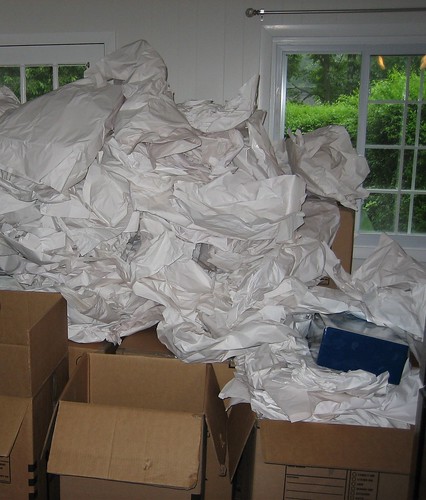There's a lively discussion going on over at Ben Grey's joint related to whether programming should be something students are required to encounter during their time at school. This discussion started at the Constructing Modern Knowledge Summer Institute (CMK09)- which I was lucky enough to attend. Several speakers at the conference stated that programming is something that all students should do. I tend to disagree with this1 , but for me it quickly raised a larger question.
This larger question came up during discussion with participants at CMK09 when discussing our views on mandating students experience some programming in the classroom. There is no doubt that programming can help students learn many valuable things (see Alec & ColleenK's comments, for example) and that including it as part of a school's regular curriculum isn't outlandish. However, many of the valuable aspects (collaboration, authentic engagement with math, creativity, usefulness in real life, etc.) might also be gained from students taking a woodworking class. Why should programming be mandatory when woodworking isn't? This then led to: How do schools decide which subjects are necessary and which aren't?
This question almost seemed silly to me at first. "Schools teach classes that meet the state standards, duh."
Wait. a. minute. The more I thought about this the deeper down the rabbit hole I went:
"How are state standards determined? What is their view of the purpose of education? How does that purpose affect the standards that are chosen?"
And then: "What purpose do the standards themselves serve? How does having predetermined standards affect the education of our students?"
Your local state board of education would probably say that standards are used to make sure that every student in the state gets the same quality of education. I'd argue that standards do more to prevent real learning from occurring- especially experiences that might help students learn to become better learners.
During both my junior and senior years in college, I was required to do research on a topic that interested me in geomorphology and structural geology. This was not supposed to be the type of research where you read a bunch of articles and report back what the articles say. I was supposed to generate new knowledge, not simply reorganize old knowledge. I actively struggled with this. In my experience as a student thus far, I had been expected to show that I knew what the standards said I should know. Brian Silverman at CMK09 noted that he marveled at the attitude of his professors toward their research. The professors got excited when their experimentation told them that what they thought was happening was wrong. It meant there was something new to learn that hadn't been discovered as of yet.
State standards make learning a checklist. In my experience as a student, I was good at figuring out how to check items off that list. However, I was a bad scientist (and a bad learner). I was uncomfortable when asked questions that might not have neat and tidy answers. I had yet to learn how to be a true learner.
How can we mesh standards with helping students become life-long learners? Can standards be made flexible enough for students to be able to engage in activities that might take them (and their teachers) down unforeseen and unpredictable paths? I don't have the answers here. I just know that standards-based assessments in areas like science, programming, or wordworking won't create students who think like scientists, programmers, or master woodworkers. Students who are instead given a challenging task (i.e., discover what food ants like best, program a kitty door to snap a picture everytime it is opened, or build a chest of drawers) and the support to help them figure things out as they go seem much more likely to have a love of learning- all the while gaining knowledge in the content area.
[UPDATE: Read Part 2 of this post]
_
- I'll save my comments specifically on this topic for Ben Grey's post since the conversation's well established over there [↩]

